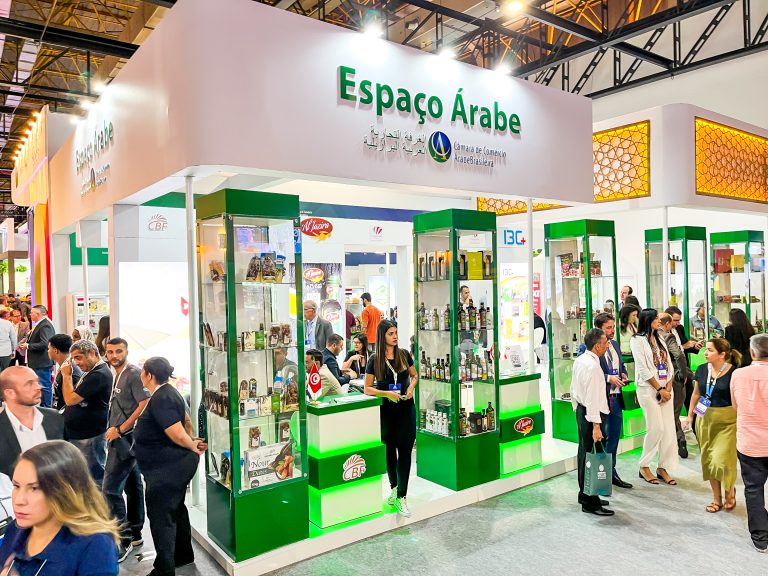São Paulo – Food and beverage exhibition APAS Show 2024 kicked off on Monday (13) in São Paulo, expecting to generate BRL 15 billion (USD 3 billion) in deals and featuring over 850 exhibitors, of which 200 are international from 22 different countries, including 15 companies from five Arab countries – Tunisia, Egypt, Lebanon, the United Arab Emirates, and Iraq.
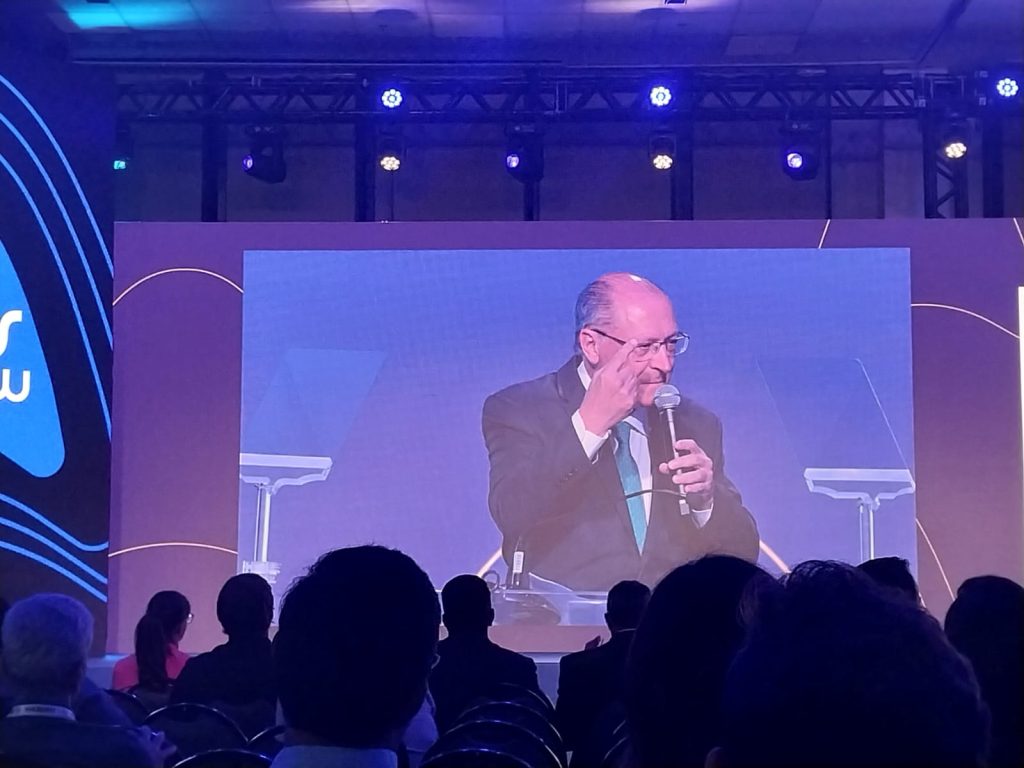
“Invest more, create more jobs, establish more stores. This is a socially and economically key sector,” said Geraldo Alckmin, vice president and minister of development, industry, trade and services of Brazil, to the grocery retailers, the largest buying public of the show, during the opening ceremony of Apas Show 2024.
The opening featured a series of officials, including from Arab countries, like Tunisian ambassador Nabil Lakhal, and leaders of the Arab-Brazilian Chamber of Commerce (ABCC), such as board member William Atui and new business director Estevão Carvalho. The ABCC organizes the participation of Arab countries at APAS.
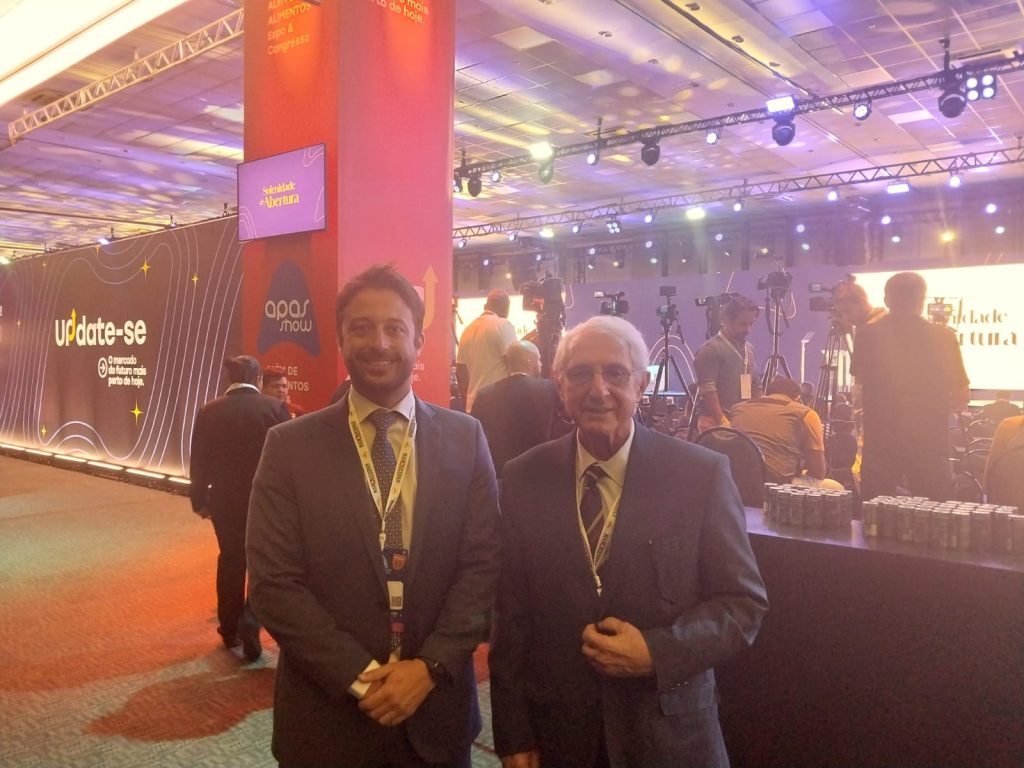
The information about the expected turnover of APAS Show was given by São Paulo Supermarket Association (APAS) president Pedro Lopes during the opening ceremony, when he added that the sector grossed BRL 300 billion (USD 58 billion) in São Paulo state alone.
Aware of the huge consumer market of São Paulo and Brazil in general, Arab officials attended the first day of APAS, visiting the exhibiting companies from their countries. Arabs exhibit products such as dates, olive oils, brine olives, snacks, condiments, frozen fruit, and other products in two areas in the White and the Blue Pavillion of Expo Center Norte.
Huge market
The Tunisian ambassador, who has been in Brasília since January, visited APAS for the first time and said the show was a major surprise for him. Besides its relevance for Brazil, he said the exhibition is also huge for Tunisia. Tunisians are showcasing mostly dates and olive oils at APAS Show.
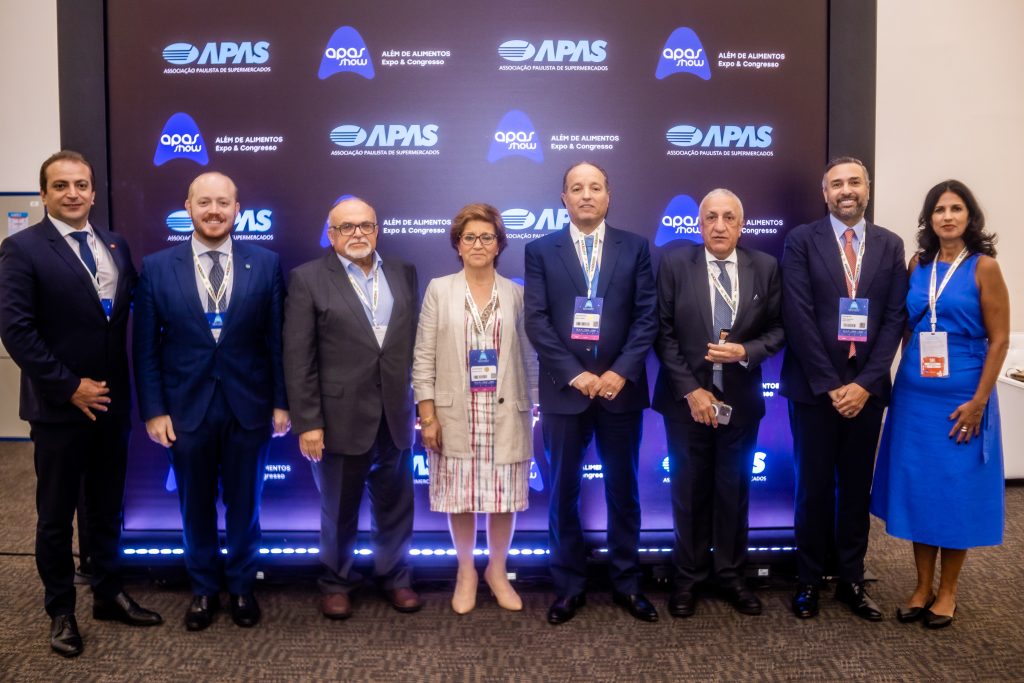
Lakhal made sure to point out he is confident that the products will be popular among Brazilians, adding that Tunisia’s olive oils have recently won in 26 out of 30 categories of a Switzerland award. “Tunisia’s is perhaps the best olive oil in the world,” he said, adding that the Daglet of Light dates of Tunisia are the world’s best, too.
Lebanon’s consul in São Paulo, Rudy El Azzi, was at APAS, too, to visit the area of Taybe, a company showcasing Lebanese goods at the show. The company imports and distributes in Brazil foods from Lebanon and other countries. El Azzi points out that Brazil has many Lebanese descendants, and that Brazilians love Lebanese food and other goods.
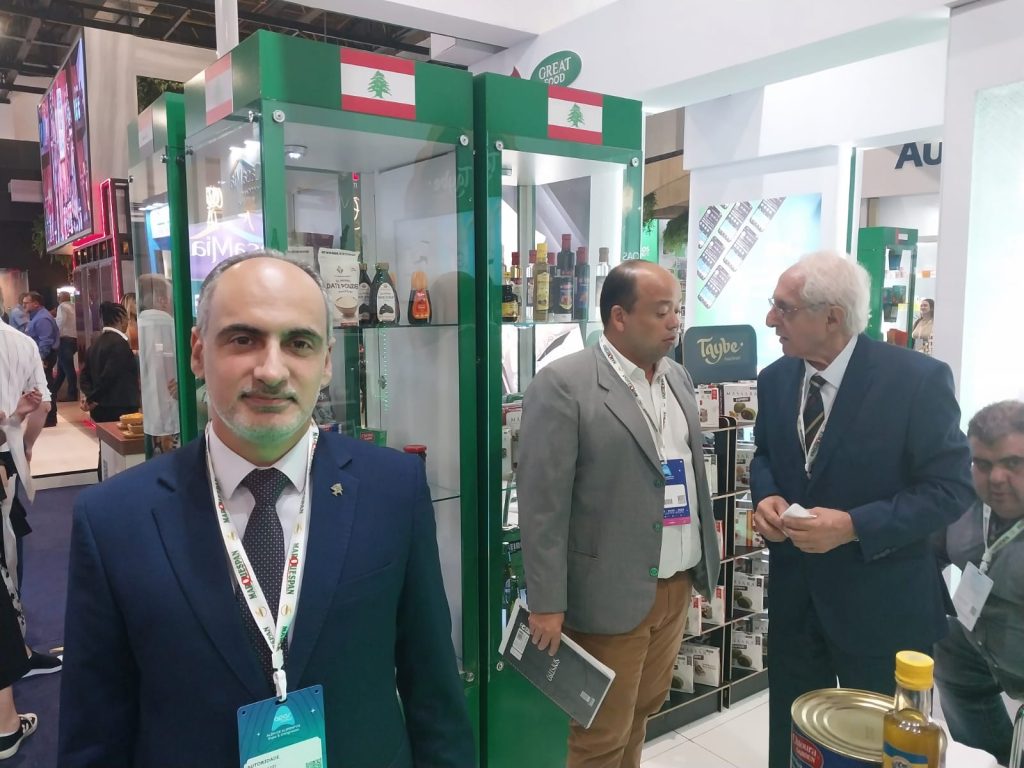
He mentions, however, barriers for Brazil-Lebanon, such as tariffs, distance, shipping costs, and others. “We have to think how we can cut costs to have bring these products more fluidly to Brazil,” he said. Due to the economic crisis in Lebanon, El Azzi says it is important that Brazil consume Lebanese products as this helps to sustain the producers in his country.
Atui says that the Arab participation at APAS is key both to showcase Arab companies to Brazil and for the exhibition to be a gateway for Arab products into Brazil. He says these foods can be sold both to industries and consumers.
Arab brands at APAS Show
Besides Lebanon’s Taybe, APAS features Iraq’s Great Foods, the United Arab Emirates’ Agthia Company/Al Foah, Tunisia’s Al Jazira, I3C+, CBF Plus, Nouri Dates, and FIT, and Egypt’s Mima Foods, Oriental Fruits, Frosty Foods, EGCT Frozen, Delta, ElSwedy, andDalsa. Brazil’s O Primo Logística participates in the ABCC’s area, too.
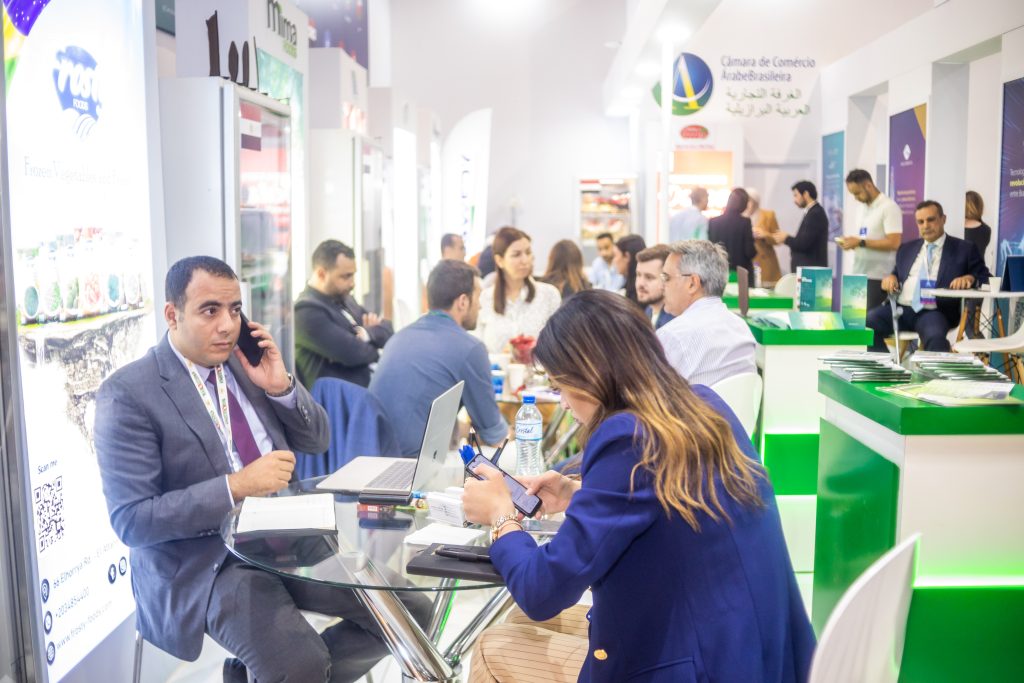
The first day of APAS was attended by other Arab leading figures including ABCC CEO & secretary-general Tamer Mansour, President Osmar Chohfi, board member Mustafá Abdouni, who’s also honorary council from Jordan, as well as Palestinian ambassador and Council of Arab Ambassadors in Brazil dean Ibrahim Alzeben, who accompanied a delegation from his country that has doing networking in São Paulo
During the APAS Show’s opening ceremony, leading figures of Brazilian and São Paulo grocery retail sector expressed their sympathy to Rio Grande do Sul and announced actions for the state, which has been ravaged by strong rains and flooding. Some 150 supermarkets in Rio Grande do Sul were flooded.
Translated by Guilherme Miranda



